Introduction
Wheeled Manure Treatment Equipment refers to mobile systems designed to handle, treat, and process livestock and poultry manure efficiently on farms. Mobility is a significant advantage of these systems, allowing farmers to transport manure treatment units easily across different farm locations, enabling flexible and on-site waste management.
Managing manure effectively is vital for maintaining farm hygiene, reducing environmental pollution, and recycling nutrients. Traditional fixed manure treatment systems may lack flexibility, especially on farms with dispersed animal housing or varying manure volumes. Wheeled manure treatment equipment addresses these challenges by providing a versatile, easy-to-move solution that can adapt to different farm layouts and requirements.
These systems typically incorporate mixing, aeration, filtration, and sometimes anaerobic digestion capabilities. By enabling on-site manure treatment, wheeled equipment helps farmers reduce labor, improve environmental compliance, and recover valuable byproducts like organic fertilizer or biogas.
Wheeled manure treatment equipment is suitable for various livestock farms including poultry, pig, cattle, and mixed farming operations, offering scalable solutions from small to large farm sizes.
Technical Parameters
Equipment Type | Wheeled Manure Treatment Equipment |
Mobility | Trailer-mounted or self-propelled |
Treatment Capacity | 2 to 30 cubic meters per batch or per hour |
Dimensions | Length: 3–8 meters; Width: 1.5–3 meters; Height: 2–4 meters |
Material | Stainless steel, galvanized steel, reinforced plastics |
Power Supply | Diesel engine, electric motor, or tractor PTO |
Treatment Methods | Aeration, mixing, sedimentation, optional anaerobic digestion |
Control System | Manual or PLC automated control |
Suitable Waste Types | Poultry manure, pig slurry, cow dung, organic farm waste |
Output Products | Treated manure, organic fertilizer, biogas (optional) |
Odor Control | Integrated biofilters or chemical scrubbers |
Features of Wheeled Manure Treatment Equipment
1. High Mobility and Flexibility
Mounted on wheels or trailers, the equipment can be easily relocated across the farm, allowing treatment near manure sources.
2. Compact and Space-Saving
Designed to occupy minimal space while delivering efficient treatment, making it suitable for farms with limited area.
3. Multi-Functional Treatment Processes
Incorporates aeration, mixing, and filtration for thorough manure breakdown; some models include anaerobic digesters for biogas production.
4. User-Friendly Controls
Equipped with manual or PLC systems for easy operation, monitoring, and parameter adjustment.
5. Durable Construction
Built with corrosion-resistant materials to withstand harsh manure environments and ensure long-term reliability.
6. Efficient Odor Management
Includes biofilters or chemical scrubbers to minimize odors during manure processing.
7. Energy-Efficient Operation
Powered by diesel engines, electric motors, or tractor PTOs, optimized for minimal fuel or energy consumption.
8. Adaptability
Suitable for various manure types and volumes, adjustable treatment parameters based on waste characteristics.
Advantages of Wheeled Manure Treatment Equipment
1. On-Site Manure Management
Enables treatment at the point of waste generation, reducing transport costs and environmental contamination.
2. Reduced Environmental Impact
Minimizes nutrient runoff, odor emissions, and greenhouse gases by efficient manure processing.
3. Improved Farm Hygiene
Reduces pathogens and pest breeding sites, promoting animal and worker health.
4. Nutrient Recycling
Produces stabilized organic fertilizer, enhancing soil fertility and reducing chemical fertilizer dependence.
5. Labor and Cost Savings
Automation and mobility reduce manual handling and associated labor costs.
6. Versatile and Scalable
Suitable for different farm sizes and types, with options to customize based on specific manure volumes.
7. Rapid Deployment
Easy to move and set up, allowing quick response to changing manure management needs.
8. Supports Sustainable Farming Practices
Aligns with modern environmental regulations and sustainability goals.
Application Scenarios
1. Poultry Farms
Treats chicken manure near poultry houses to control odors and improve nutrient recovery.
2. Pig Farms
Processes pig slurry and solid waste, enabling flexible manure management in multi-building operations.
3. Dairy and Cattle Farms
Handles cow manure and organic waste with on-site treatment and fertilizer production.
4. Mixed Livestock Farms
Manages diverse manure streams with adjustable treatment protocols.
5. Organic and Small-Scale Farms
Offers affordable, mobile manure processing solutions compliant with organic standards.
6. Temporary or Seasonal Use
Useful for farms requiring temporary manure treatment during peak production periods.
Usage Instructions
1. Installation and Setup
Position the equipment near manure sources using towing vehicles or tractors.
Connect power sources: diesel engine, electric motor, or tractor PTO.
Ensure all safety guards and covers are in place.
Calibrate control systems based on manure volume and type.
2. Operation
Load manure into the treatment chamber or hopper.
Start aeration, mixing, and treatment cycles as per instructions.
Monitor treatment parameters such as temperature, oxygen levels, and pH.
Adjust treatment time and aeration intensity to optimize processing.
Collect treated manure or byproducts for storage or field application.
3. Maintenance
Clean manure residues from treatment chambers after each use.
Inspect and lubricate mechanical parts regularly.
Check blower and motor function weekly.
Replace filters and scrubber media as needed.
Calibrate sensors and control units periodically.
4. Safety Precautions
Wear protective clothing and masks when handling manure.
Follow electrical and mechanical safety protocols.
Operate equipment only with trained personnel.
Ensure adequate ventilation during treatment.
Have emergency shutdown procedures in place.
Maintenance Tips
Conduct daily checks for leaks, blockages, or unusual noises.
Schedule monthly servicing of engines or motors.
Maintain cleanliness to avoid corrosion and mechanical wear.
Keep spare parts readily available for quick repairs.
Train farm staff on routine maintenance and troubleshooting.
Frequently Asked Questions (FAQ)
Q1: What types of manure can this equipment treat?
A: Poultry manure, pig slurry, cow dung, and other organic livestock waste.
Q2: How mobile is the equipment?
A: Trailer-mounted units can be towed by tractors or trucks; some are self-propelled.
Q3: What power sources are available?
A: Diesel engines, electric motors, or tractor PTOs.
Q4: Can the equipment produce biogas?
A: Some models include anaerobic digestion modules for biogas generation.
Q5: How often should the equipment be cleaned?
A: After each treatment cycle or daily during heavy use.
Q6: Is the equipment suitable for small farms?
A: Yes, smaller capacity models are available for small-scale operations.
Q7: How is odor controlled?
A: Through integrated biofilters or chemical scrubbers.
Q8: What maintenance is required?
A: Regular inspection, cleaning, lubrication, and part replacement.
Q9: Can the treatment parameters be adjusted?
A: Yes, aeration, mixing, and treatment duration can be customized.
Q10: What are the environmental benefits?
A: Reduces pollution, improves nutrient recycling, and lowers greenhouse gas emissions.
Conclusion
Wheeled Manure Treatment Equipment offers a flexible, efficient, and environmentally friendly solution for modern manure management on livestock and poultry farms. Its mobility allows on-site treatment, reducing transportation costs and environmental impact. Combining advanced treatment processes with durable, user-friendly design, this equipment helps farmers improve hygiene, recycle nutrients, and comply with environmental regulations.
Whether for small family farms or large commercial operations, wheeled manure treatment systems provide adaptable solutions to meet diverse manure management needs, supporting sustainable and profitable farming practices.
Company Profile
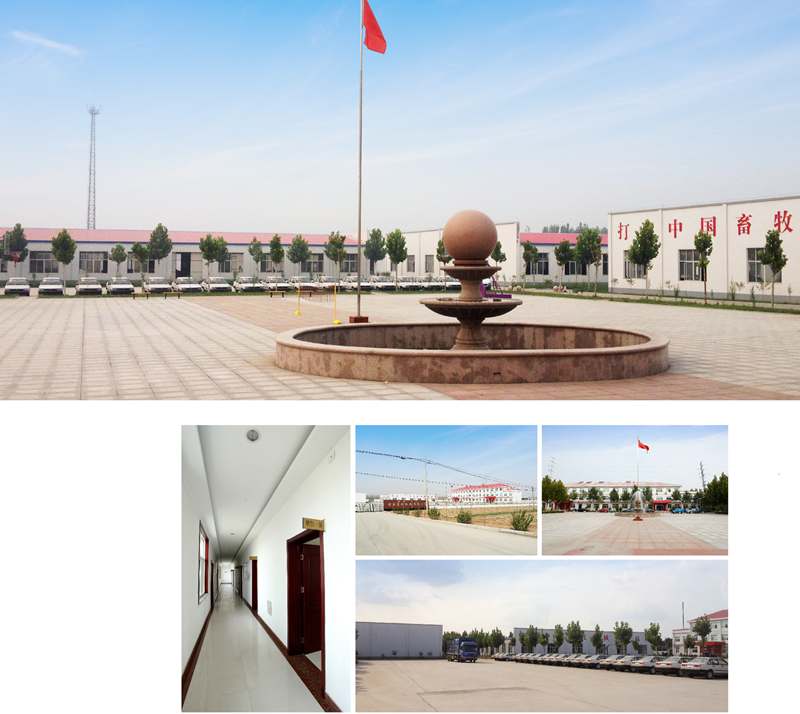
Shandong Huimin Qinle Livestock Machinery Co., Ltd. (formerly Shandong Huimin Qinle Livestock Machinery Factory) is a professional poultry equipment manufacturer with over 20 years of experience. We offer a comprehensive service package, from design (land and chicken coops), production (equipment and prefabricated steel coops), installation, commissioning, customer training, and after-sales service.
Located in Huimin County, Binzhou City, Shandong Province, China, the company has extensive experience in mechanical processing and manufacturing, as well as livestock machinery production and operation. With fixed assets of RMB 15 million, the company employs 160 people, including 30 R&D staff, and occupies a 40,000-square-meter factory. Equipped with over 110 pieces of advanced precision production equipment, including CNC machining centers and laser cutting machines, the company boasts a production capacity of RMB 50 million.
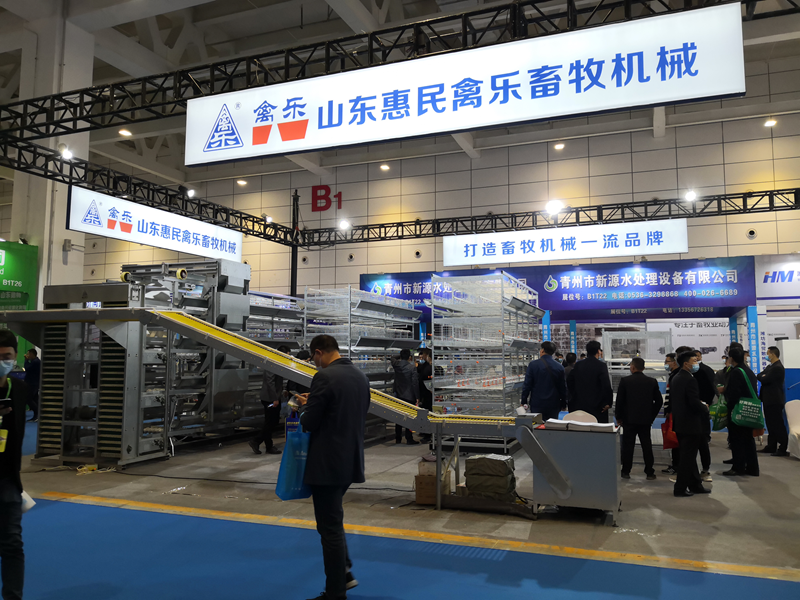
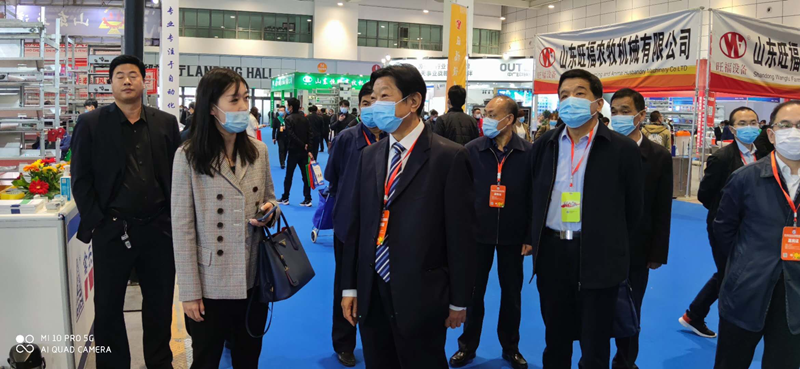
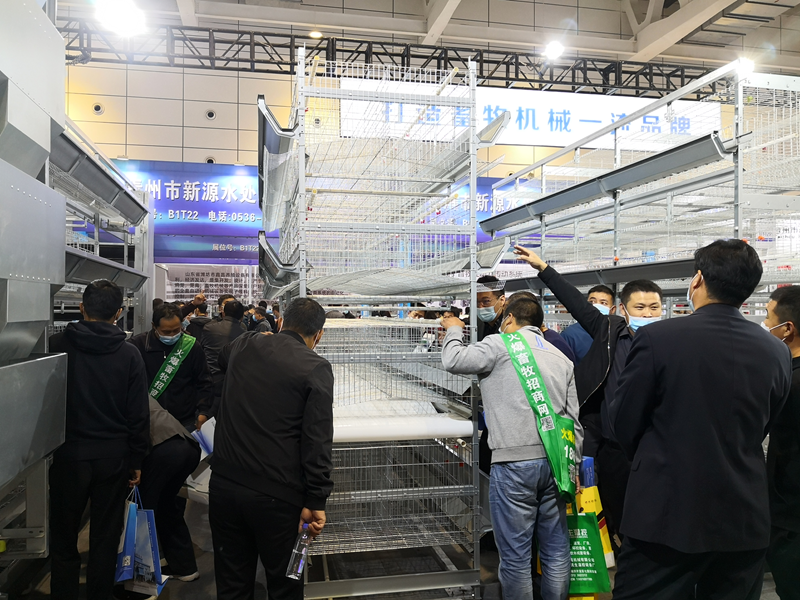
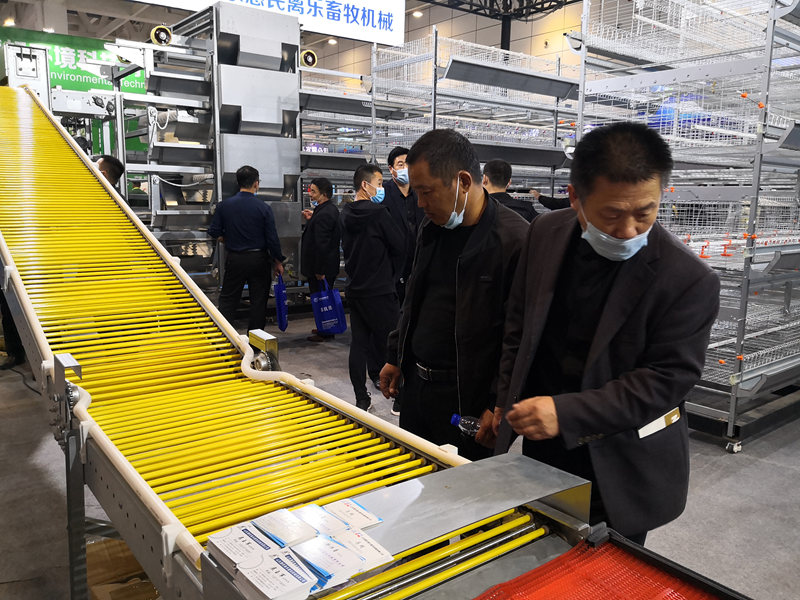
Chicken Farming Equipment Mesh Production Workshop

Machining Workshop
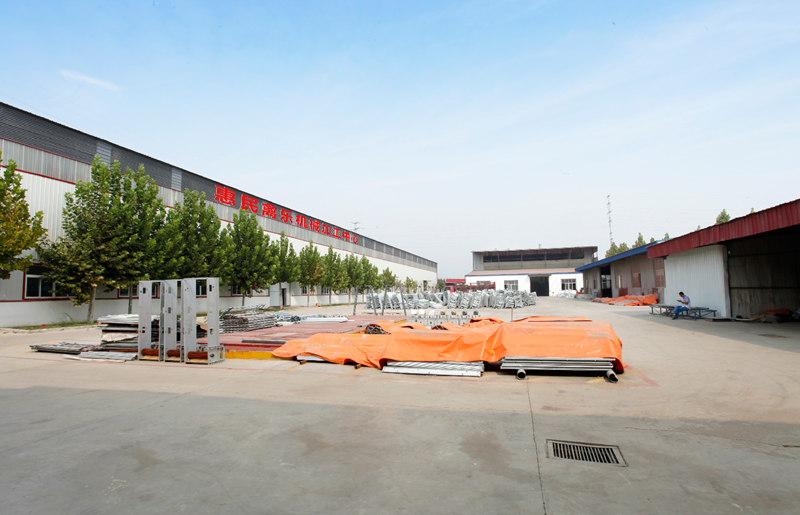
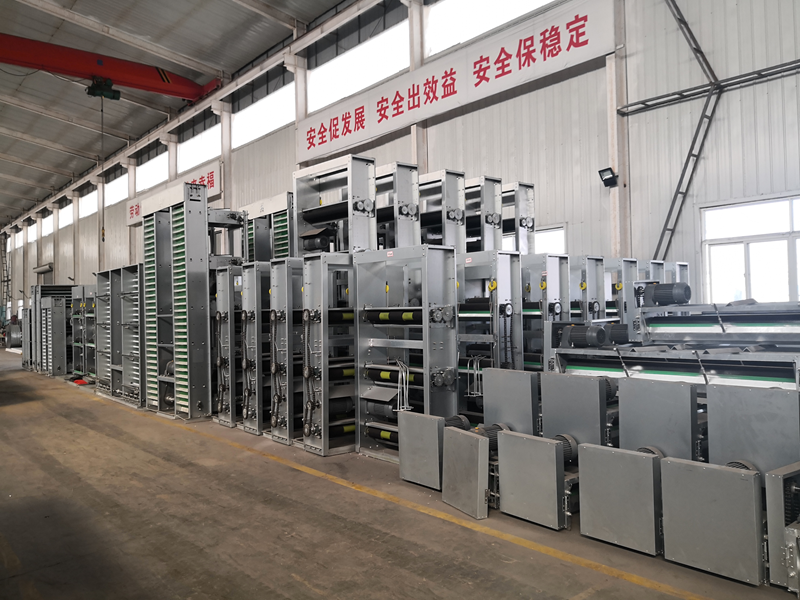
Turret-type CNC Punch Press, Laser Cutting and Other Machining Equipment
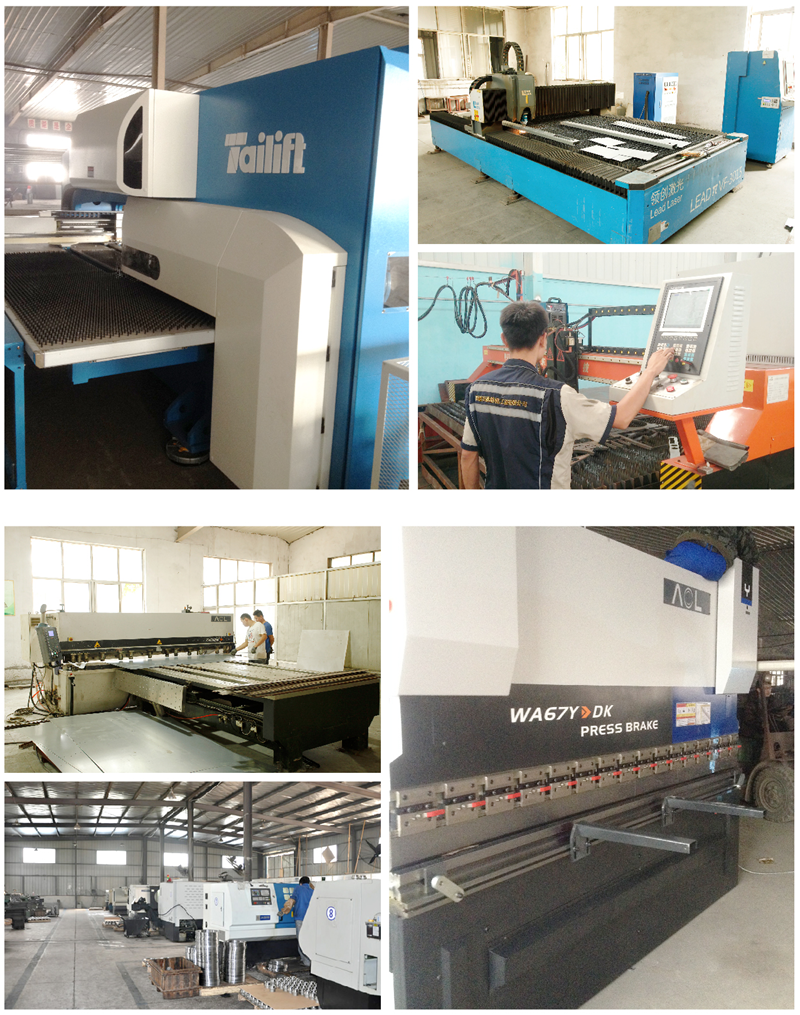
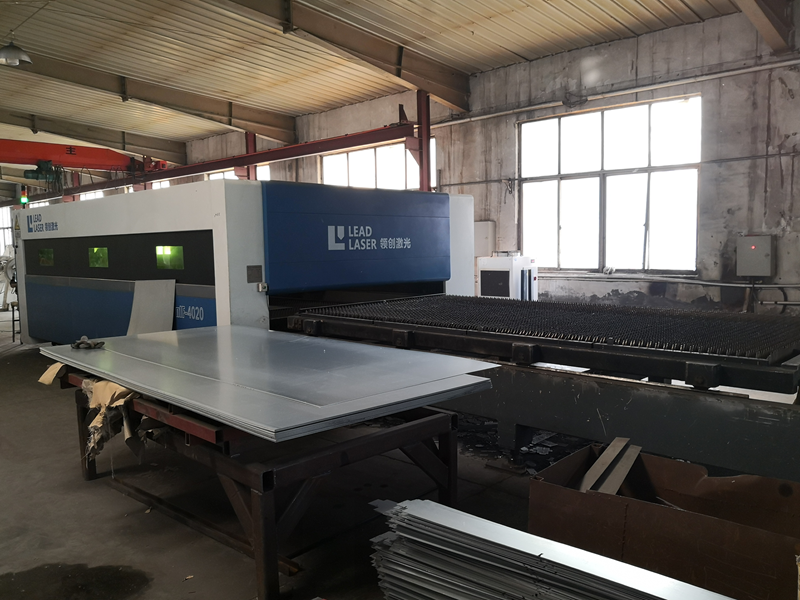

Fully Automated Roll Forming Production Line

Hot-dip Galvanizing Production Line

Electroplating Production Line
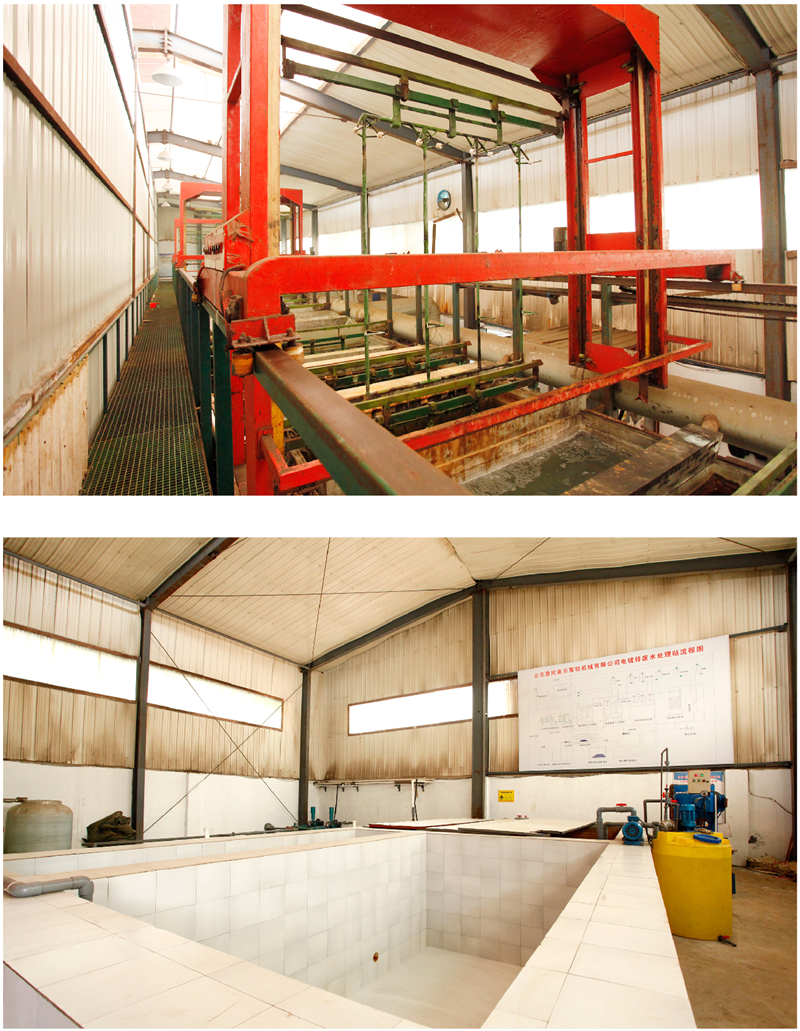
Environmental Protection Equipment
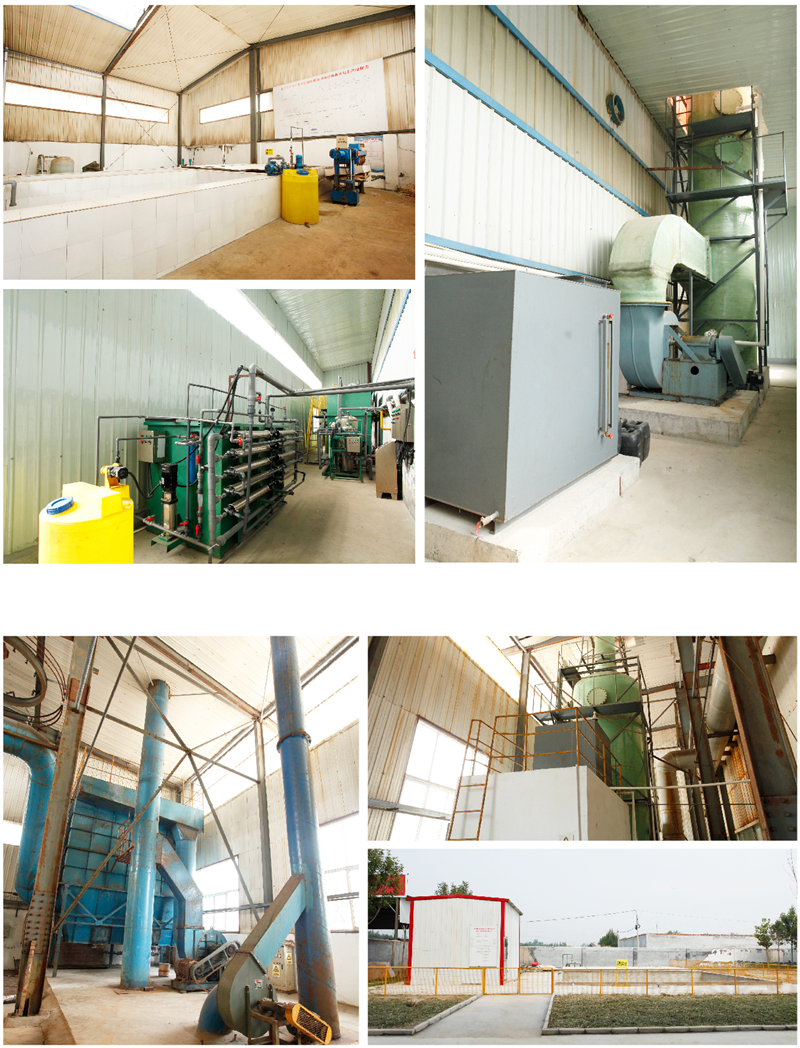
Chicken Farming Equipment Product Series
Egg-laying Hen Farming Equipment
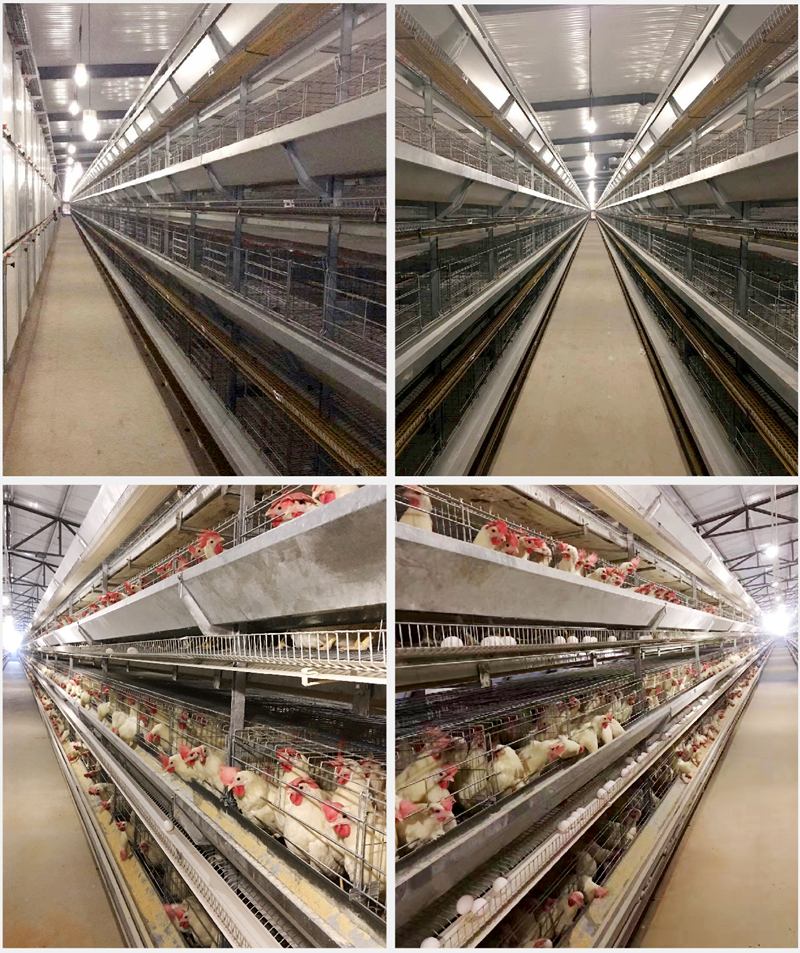
Stacked Brooding Cage Equipment

Stacked Broiler Cage Equipment
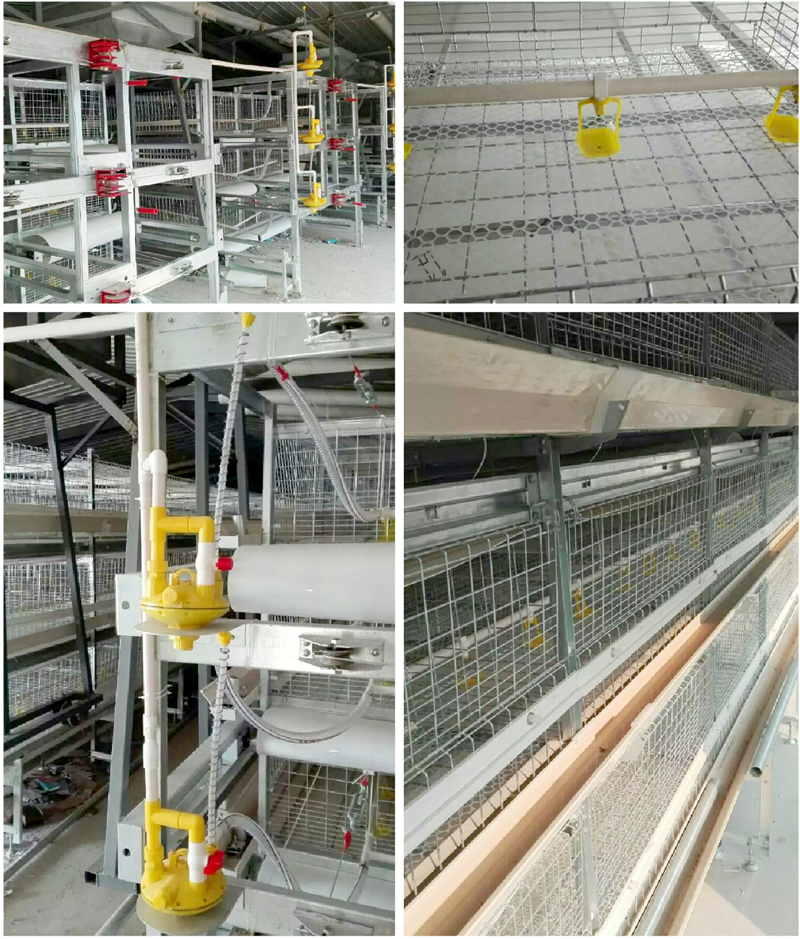
Stepped Layer Hen Cage Rearing Equipment
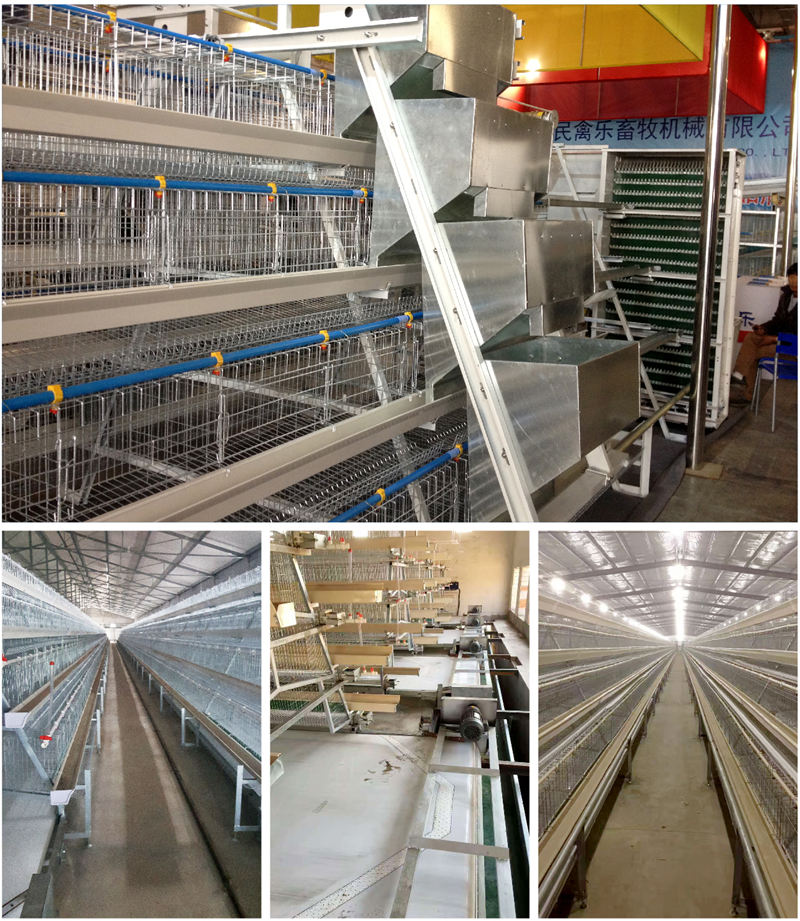
Automatic Egg Collection System
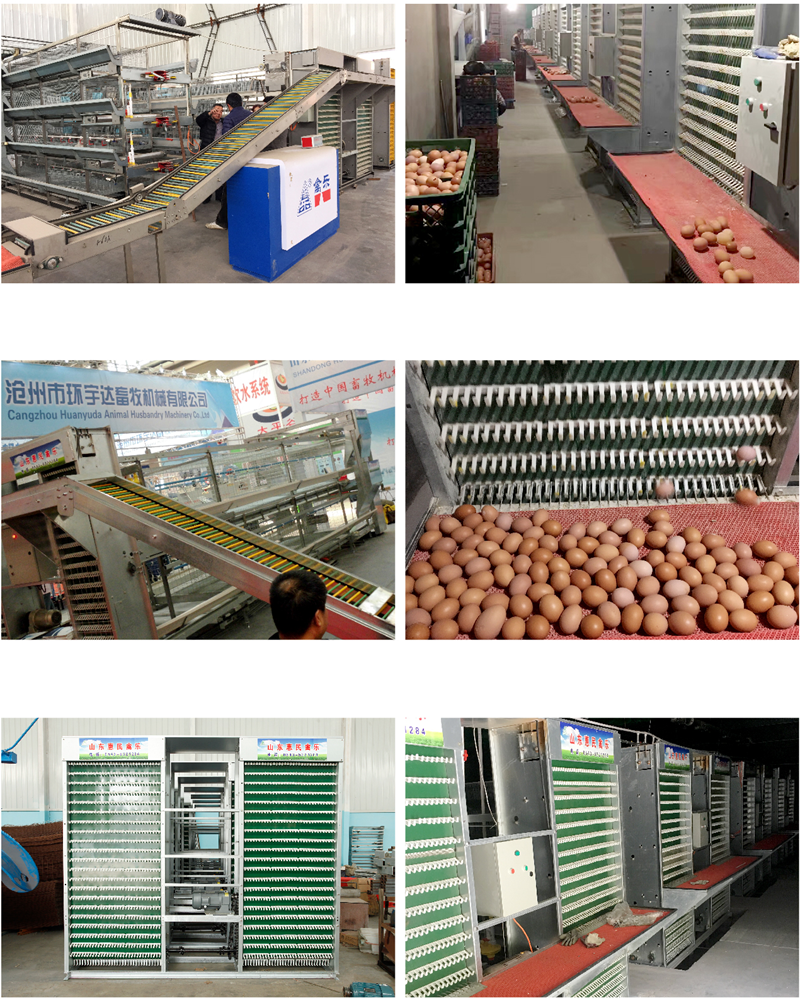
H-type Cage Feeding Machine
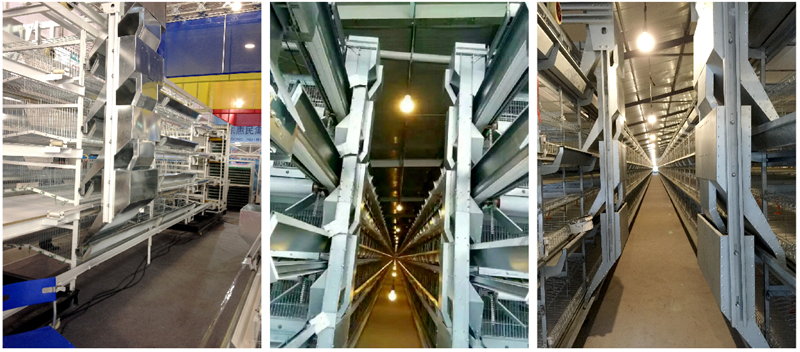
Stepped Cage Straddle Feeder
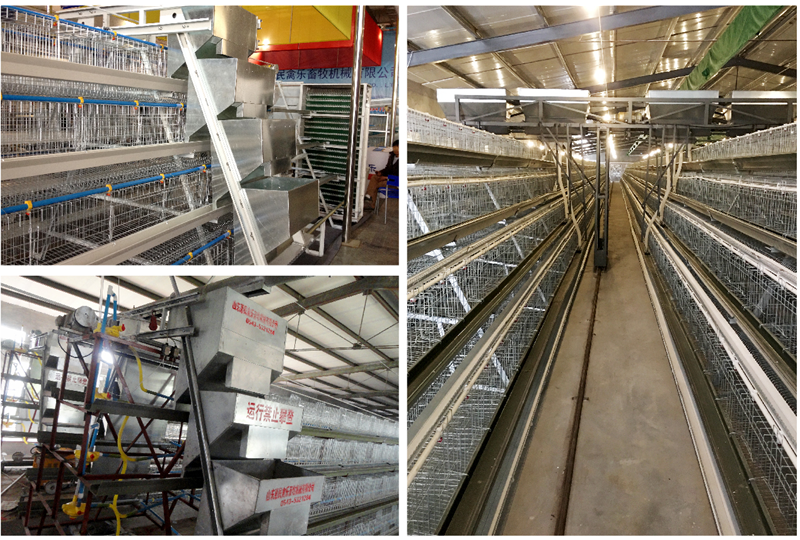
Manure Removal Machine
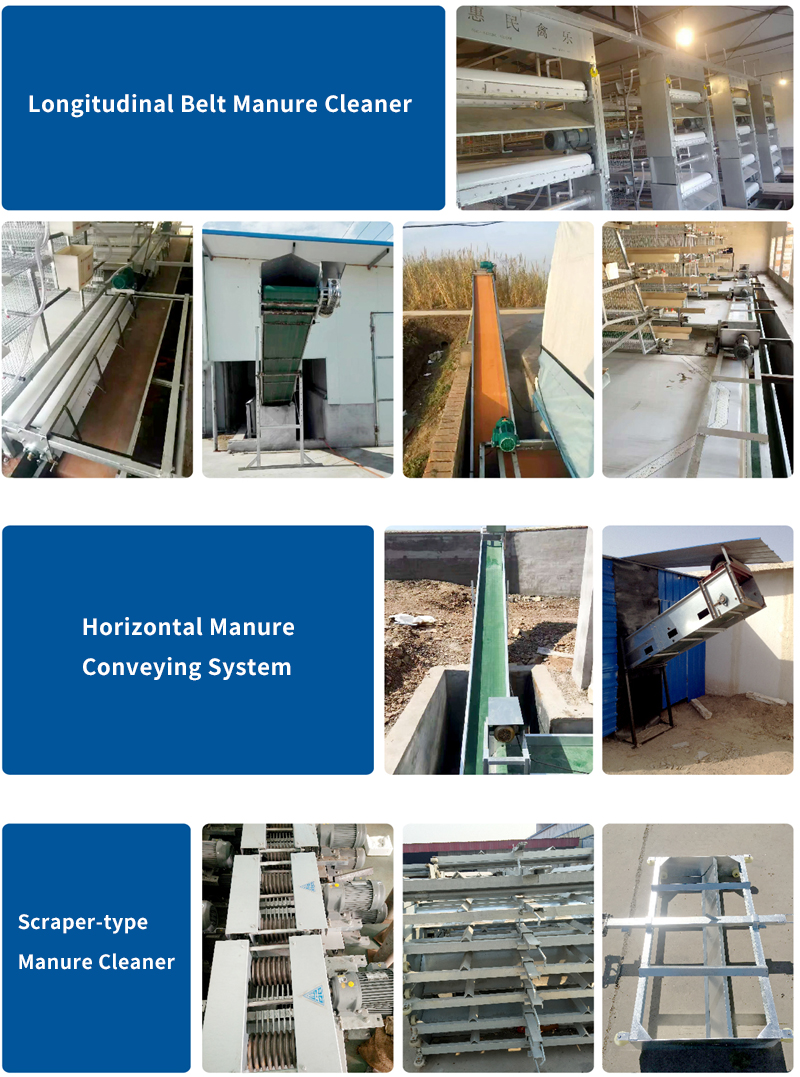
Fans, Heated Curtains, Environmental Control Systems, and Lighting Equipment
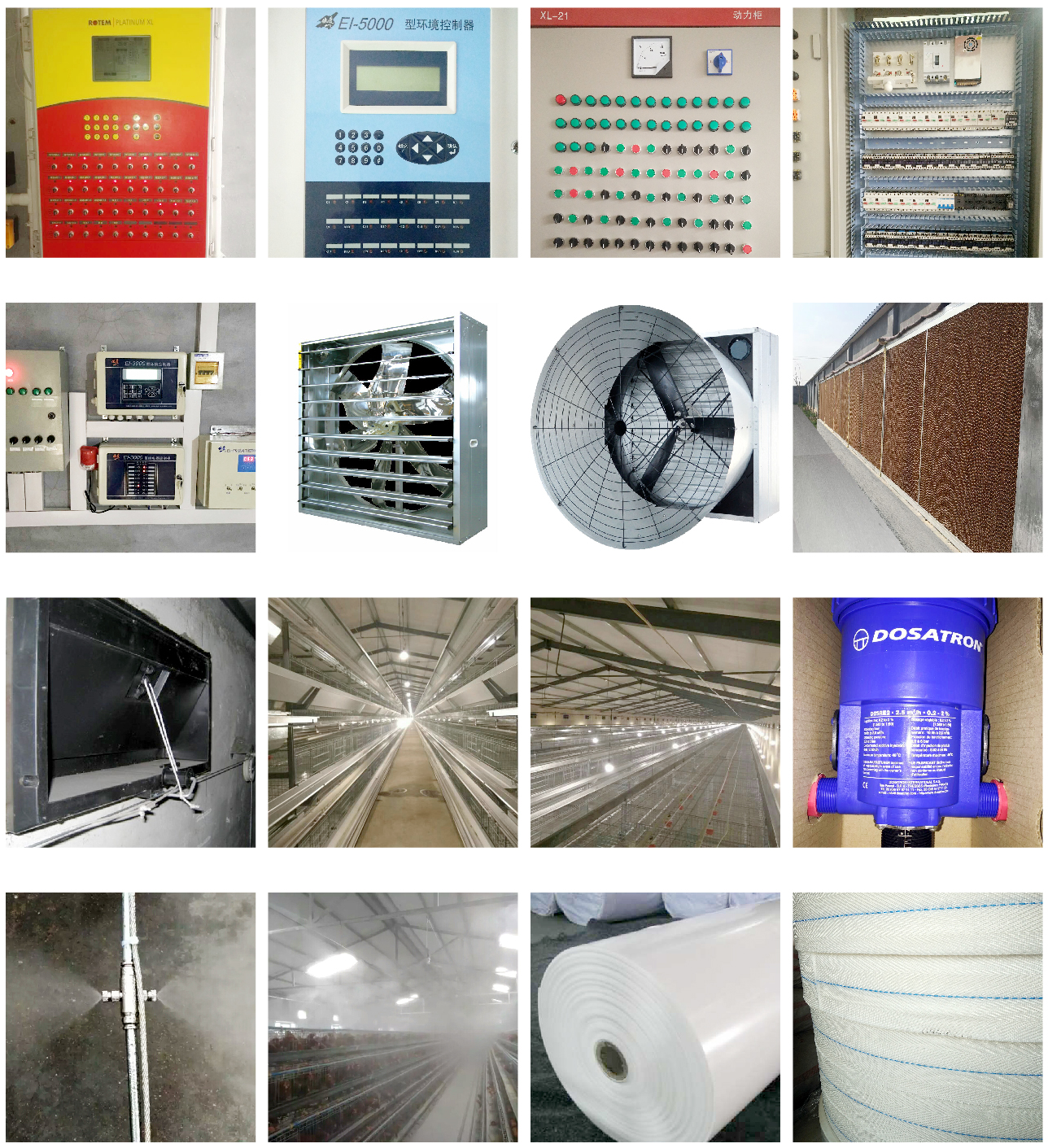
Complete Set of Equipment for Organic Fermentation Treatment of Manure
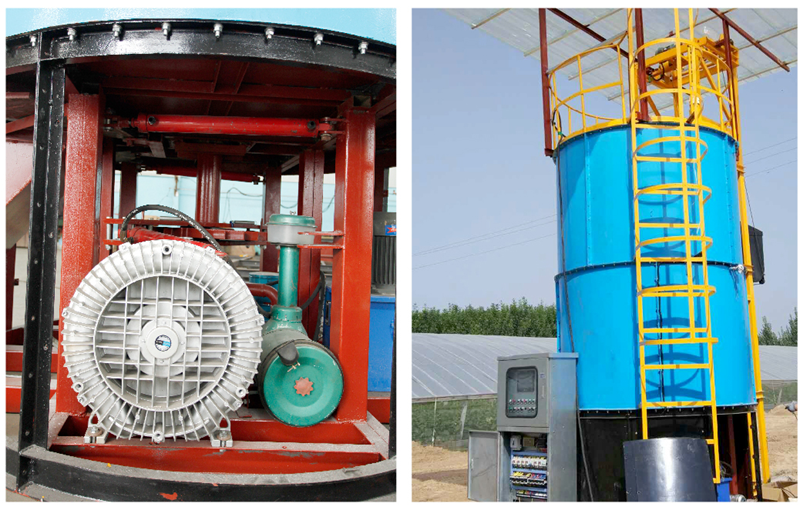

 Catalogue
Catalogue






























 Whatsapp
Whatsapp Телефон
Телефон